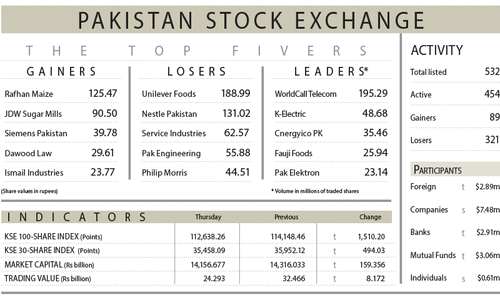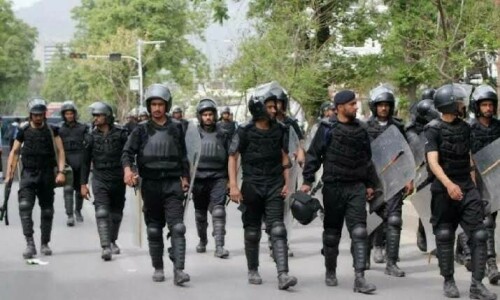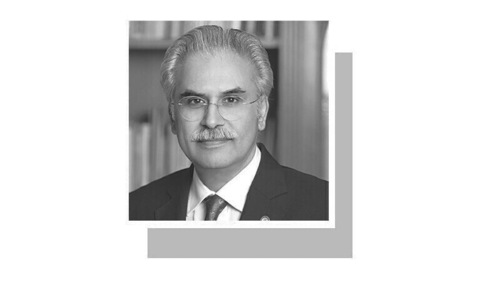BRUSSELS, June 20: EU leaders failed at a summit on Friday to overcome divisions over how to ease the pain of high oil prices, with France finding little support for proposed tax breaks on fuel.
Following Irish voters’ rejection of the European Union’s Lisbon Treaty last week, the leaders had been eager to demonstrate that the bloc can rise to tough challenges like finding a solution to the impact of high oil prices.
But in the midst of differences over how to respond, European Commission President Jose Manuel Barroso said there were no easy solutions for high oil prices.
“We have sent out a very clear message that there will not be a quick fix for the issue of the oil prices,” he told journalists after the two-day summit in Brussels.
“There is a structural problem that needs a structural response, and we need structural change.”
With crude oil prices nudging $140 a barrel, Europe has seen waves of protests against the soaring cost of fuel in recent weeks, led by increasingly militant fishermen, farmers and truckers.
At the same time, consumers have felt their purchasing power pinched by the rise in food prices, which increased 6.4 per cent in May over one year in the 15 countries sharing the euro.
In the absence of an agreement on more radical measures, EU leaders concluded that any steps governments take to give consumers relief from high oil prices should be temporary and targeted so not to distort markets.
Facing militant protests at home over fuel prices, French President Nicolas Sarkozy proposed recently to ease EU rules on value added tax on fuel in order to give consumers some relief from high prices.
However, the proposal, which would require unanimous support from member states, ran into stiff opposition from other member states.
“It’s not by manipulating VAT and other taxes that we can get a cost reduction but rather by reducing the price of the raw material,” Polish Prime Minister Donald Tusk told journalists.
“The only alternative is an energy policy that is adaptable, strong and leads to our energy independence,” he added.
Despite broad opposition to his plans, Sarkozy was tenacious, vowing: “I won’t give up, I’m going to fight on this subject, it’s a question of justice.”
The French leader, whose country takes over the EU’s rotating presidency next month, managed to keep the idea alive by proposing to study it further in the months ahead with the European Commission.
While Barroso was prepared to keep all options open, including on VAT rates, he stressed that Europe’s answer to high oil prices ultimately would have to have a long-term focus.
“We need to reduce our oil dependency, we need to be more energy efficient and to promote energy diversification,” he said.
While EU leaders met in Brussels they were reminded of their dependence on foreign oil as Venezuelan President Hugo Chavez threatened to shut off oil exports to Europe and kick out their investments if they enforce tough new EU rules on illegal immigrants.—AFP










































Dear visitor, the comments section is undergoing an overhaul and will return soon.